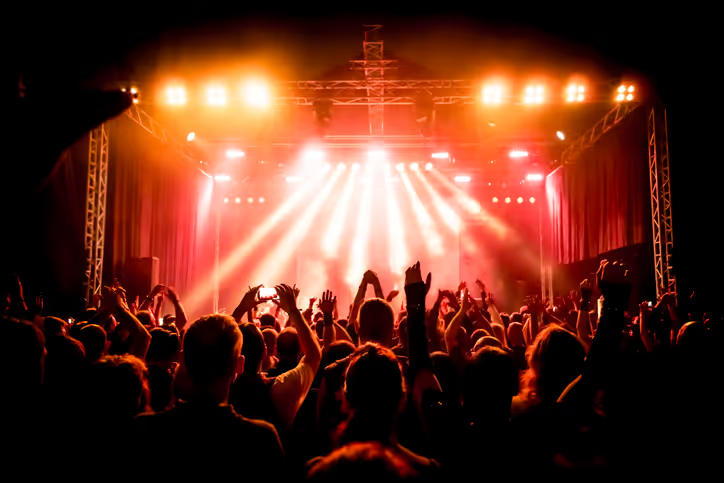We've all spent time in loud environments like nightclubs, bars, concerts, and sporting events. Music in clubs and at gigs can be as loud as 110 decibels. You might need to shout to be heard talking to someone standing right next to you. The following morning you wake up, and your ears are ringing. Depending on how loud the music was, it might be enough to damage your hearing. And once your hearing is damaged, it's permanent.
Fortunately, there are things that we can do to prevent hearing damage in loud environments.
Stand away from loud, direct noise
It might feel great standing next to the DJ booth or dancing on a speaker, but it's not great for your ears. Find a spot where you can still feel part of the action that's kinder on your ears.
Take breaks from the noise
Your ears need time to recover from loud noise. Reducing the time spent in noisy environments as much as possible is crucial to preventing hearing damage.
Use hearing protection
Earplugs worn correctly can help reduce the impact of loud noises by 15 to 30 decibels (dB), depending on how they are made and fit. Another option are earmuffs that fit completely over both ears. The Centers for Disease Control and Prevention (CDC) even recommends that people use earplugs and earmuffs together to achieve even greater sound reduction.
Be aware of long term and high-level exposure at entertainment venues
Many musicians suffer from tinnitus, a common symptom characterised by a ringing,, roaring, clicking, hissing, or buzzing in the ears even if no sound is present. Tinnitus can also include hearing damage or loss. Musicians should consider professionally fitted custom earplugs to reduce the impact of long-term exposure to loud music.
A court hearing in 2018 set a legal precedent for the responsibility of management to protect musicians. Viola player Chris Goldscheider was seated directly in front of the orchestra's brass section for a rehearsal of Wagner's thunderous opera “Die Walküre” at the Royal Opera House. During that rehearsal, the noise levels exceeded 130 dB - roughly equivalent to a jet engine. This irreversibly damaged his hearing.
He's not alone. Research has found noise-induced hearing loss seen in up to 58% of classical and 49% of rock/pop musicians.
However, sports fans are also at risk at events like football and hockey games, where the volume can be as high as 94 to 110 dB when fans are cheering. Spectators' use of horns and vuvuzelas can cause permanent hearing damage at close range with a sound level of up to 120 dB. Therefore wearing hearing protection is advised at sporting games.
There's a lot of noisy environments that can be fun but also cause us harm. By being aware of the risk of damage, we can also take steps to reduce the impact without impairing our enjoyment.
Find out more about your hearing to help you to protect it
Download the Mimi Hearing Test App on the App Store or Google Play Store to test and monitor your hearing right away! With a simple test you can find out if your hearing is impacted and create a personalized sound profile fitted to your own hearing.
